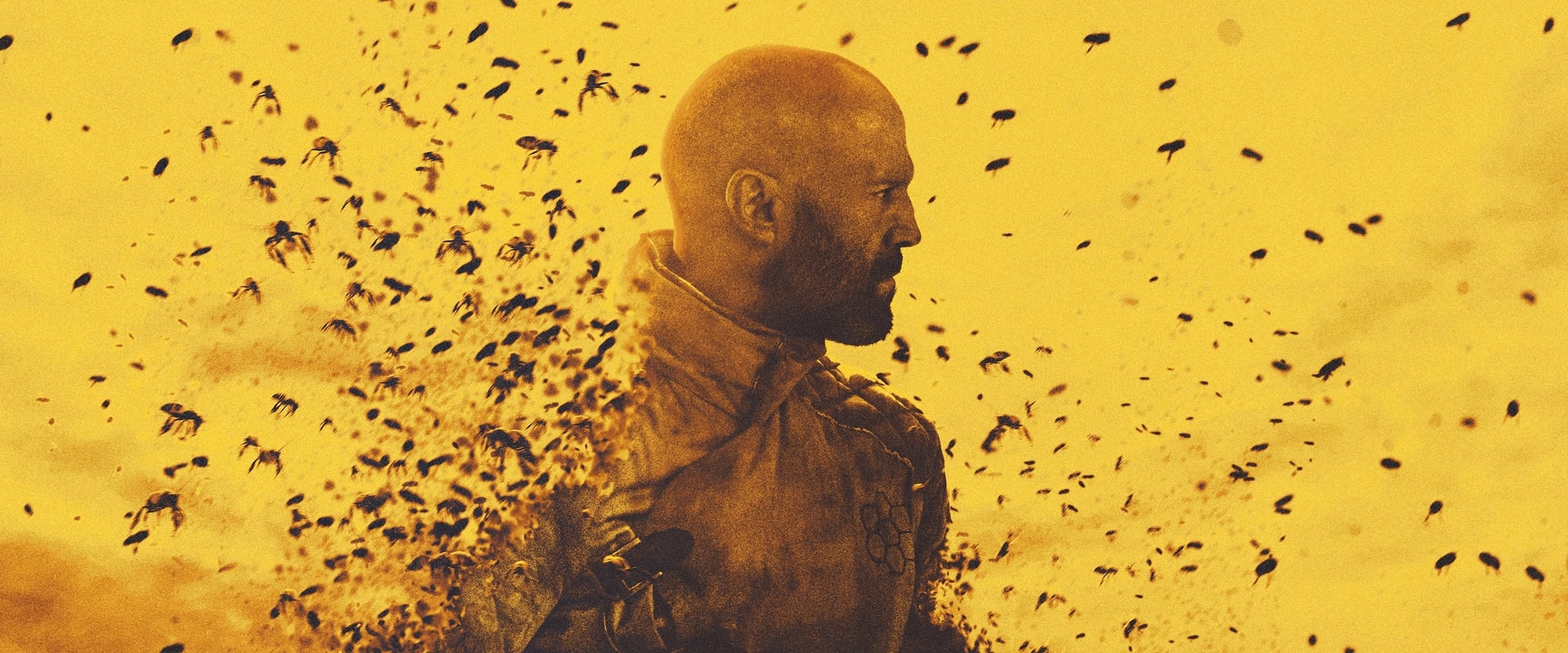If revenge movies are the honey of action cinema, “The Beekeeper” is a fiercely sweet jar delivered with a sledgehammer. Jason Statham, an actor who flashes more punch than pathos, takes his turn as Adam Clay—a retired covert hive-minder (forgive me, the bee metaphors come with the territory) turned literal beekeeper. He’s minding his own buzz until his landlady, a kindly Eloise Parker, swallows a phishing scam and then heartbreakingly, herself. There’s your setup: one jar of honey, spectacularly smashed.
What follows is not so much “Taken” as it is “Punished—with Pollinators.” Statham’s Clay, mourning but never maudlin, transforms his melancholy into a battering ram, going after the criminal drones who prey on the weak—every lowlife parasite in a supply chain for digital carnage. Justice, loyalty, hidden lives: yes, the film gestures at heft, but director David Ayer knows why we’re here. His camera moves with the same abruptness and blunt satisfaction as Statham’s knuckles. The plot isn’t so much woven as slapped together, brisk and buzzing—this is not a movie for anyone interested in the slow flowering of character (unless your idea of character development is a shot-glass of grief before a bloodbath).
Statham, for his part, operates with the dogged, comforting singularity of a movie star who knows his place in the ecosystem. He’s the Jack Reacher who never blinks, the John Wick who trades puppy for pollination. There are hints of interiority—Clay is allowed his solitude and sadness—but don’t blink or you’ll miss the feelings behind the five-o’clock shadow. The supporting cast—Emmy Raver-Lampman’s FBI agent, a woman with a badge but little else—are written as cardboard, the kind that folds under the weight of a sub-plot. Dialogue? Half the time it’s only there to provide Statham another excuse for a headbutt or a glowering one-liner.
The action choreography, meanwhile, is robust—the Ayer trade. Bullets and fists meet with the clangorous poetry of a trash-can symphony. Car chases unspool like old reels, full of brawny inevitability. Every collision feels both ludicrous and entirely serious—the movie’s violence is so vigorous it circles back to slapstick and then sneaks up behind itself with an air of funereal gravity.
And then there’s the bees. Oh, the bees! You can imagine the screenwriter, gripped by inspiration—or an edible—deciding the insect kingdom is a perfect metaphor for murder-ballads and found families. Sometimes it works: the hive, the queen, the idea of protection binding the plot’s sticky frame. Other times, it’s enough to make you wish someone had called pest control. The motif is both the film’s calling card and its worst dad joke, hovering above every set-piece with a crescendo of obviousness. To love it is to embrace the film’s own sheepish self-seriousness; to hate it is to feel the stinger straight in the eye.
Does it matter? Only if you’re allergic to fun. “The Beekeeper” has already made a honeyed haul at the box office (critics are divided; who can blame them?), and Statham’s unkillable charisma gets another lease on cinematic life. Forget character arcs—you won’t find growth, only carnage. If you’re hoping for high-minded storytelling or a script that survives the third act, you’ll leave hungry. But if you came for the sugar rush—explosions, fisticuffs, righteous vengeance in a world gone to digital rot—you’ll get your fill and then some.
In the end, “The Beekeeper” is exactly what it promises: Statham, violence, and a swarm of metaphors buzzing around your head. You leave the theater sticky with adrenaline, and in our current movie ecosystem, that’s just about enough to keep the species going.


